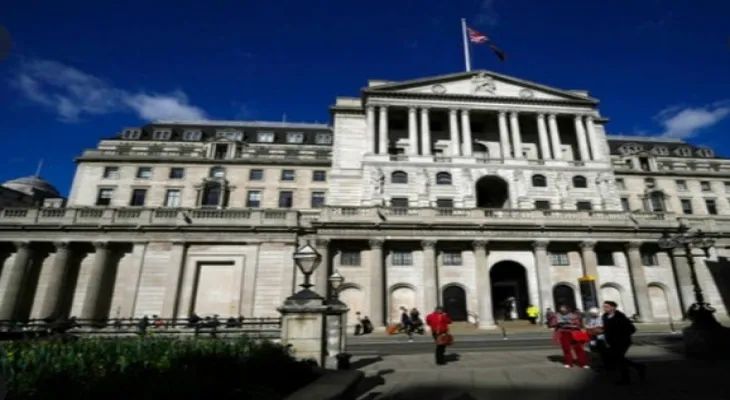Search here
Newspaper
Search here

Arab Canada News
News

Published: September 22, 2022
The Bank of England raised the main interest rate on Thursday by another half a percentage point to the highest level in 14 years, but avoided further aggressive measures to tame inflation that the US Federal Reserve and other banks have taken.
This is the seventh consecutive move by the Bank of England to increase borrowing costs as rising food and energy prices fuel the cost-of-living crisis considered the worst in a generation. Despite facing a currency decline, a tight labor market, and inflation near its highest level in four decades, officials decided not to act more boldly as they expected a second consecutive decline in economic output this quarter, an unofficial long-standing definition of recession.
The bank agreed to a half-point increase last month — the largest in 27 years — bringing the benchmark interest rate to 2.25%, and the decision was delayed for a week as the UK mourned the passing of Queen Elizabeth II. This comes after the new Prime Minister Liz Truss's government unveiled a massive relief package aimed at helping consumers and businesses cope with high energy bills.
The measures also eased uncertainty about energy prices and are “likely to significantly limit further increases” in consumer prices, policymakers at the bank said. They expected inflation to peak at 11% in October, lower than previous forecasts.
The Monetary Policy Committee said: “Nevertheless, energy bills will continue to rise, and along with the indirect effects of higher energy costs, inflation is expected to remain above 10% over the next few months, before starting to decline.”
The UK's decision comes during a busy week of central bank activity marked by stronger moves to cut high consumer prices, as the US Federal Reserve raised interest rates by three-quarters of a point for the third consecutive time on Wednesday and anticipated more large hikes ahead. On Thursday as well, the Swiss central bank made the largest ever increase in its main interest rate.
Also, rising inflation is a concern for central banks because it erodes consumers' purchasing power. The traditional tool to combat inflation is to raise interest rates, which reduces demand and thus prices, by making borrowing money more expensive.
The inflation rate in the UK is 9.9%, close to its highest level since 1982 and five times higher than the Bank of England's 2% target. The British pound is at its weakest level against the dollar in 37 years, contributing to imported inflation.
To ease the crisis, the Truss government announced it would set a cap on energy bills for households and businesses, which have risen sharply with the increase in natural gas prices required for heating due to the Russian war in Ukraine.
The Bank of England expects GDP to fall by 0.1% in the third quarter, lower than August's forecast of 0.4% growth. This would be a second quarterly decline after the Office for National Statistics estimated production had fallen by 0.1% in the second quarter.
The bank avoided pressure to increase the inflation rate even as other banks worldwide took strict measures against inflation fueled by the global economic recovery from the COVID-19 pandemic and then the war in Ukraine.
Also, this month, the Swedish central bank raised its main interest rate by a full percentage point, while the European Central Bank made its largest ever increase by raising three-quarters of a point for the 19 countries using the euro.
Comments